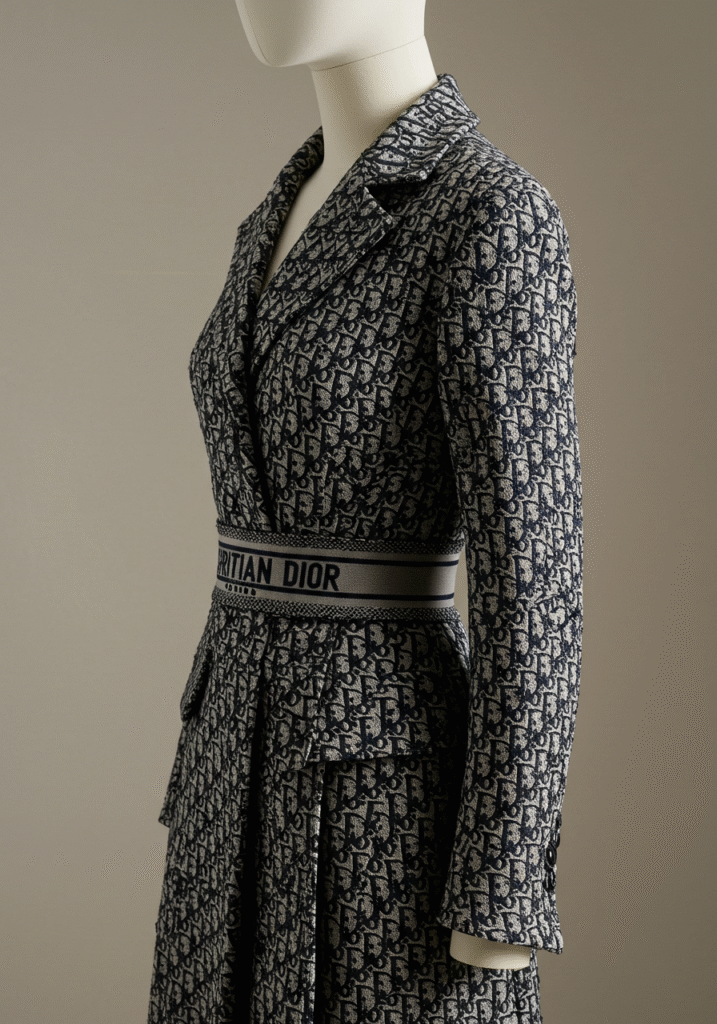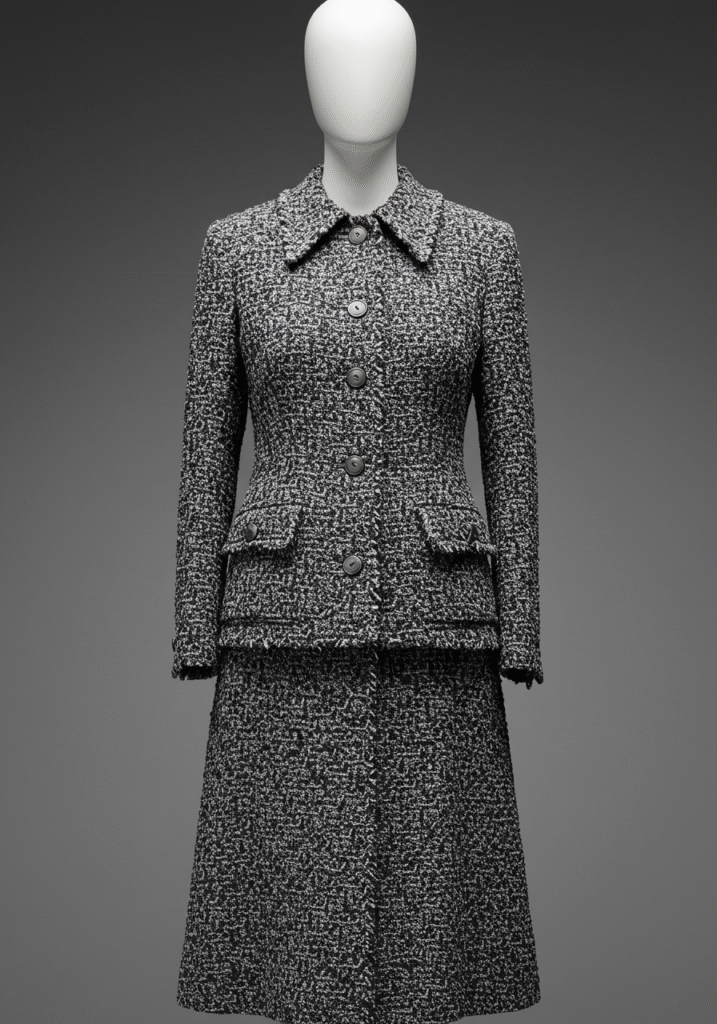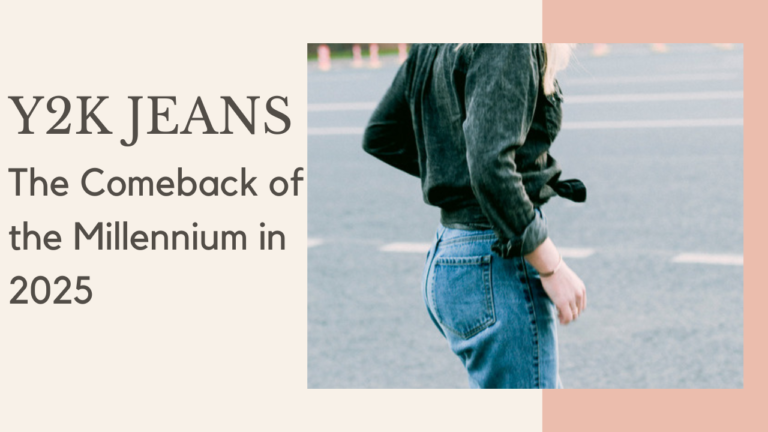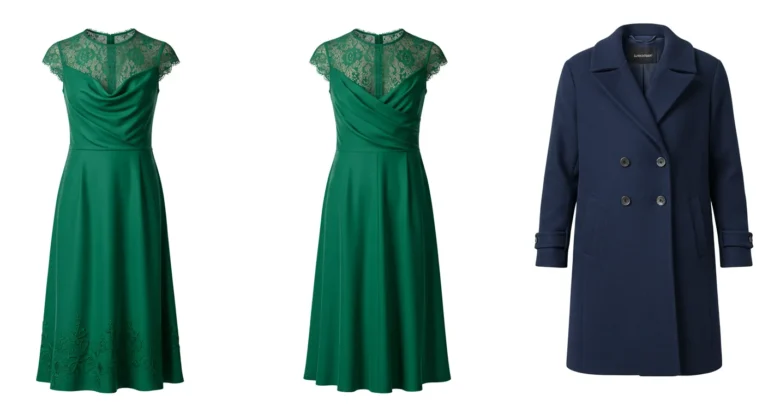Dior & Natalie Portman best Timeless Tale of Elegance in 2025
Introduction
When elegance meets intellect, the result is more than just beauty—it becomes a legacy. This is precisely what has been achieved in the ongoing partnership between Dior and the iconic actress Natalie Portman. A collaboration that began over a decade ago, this union has evolved into one of the most celebrated brand-ambassador relationships in the modern fashion and fragrance industry. Far beyond a mere promotional alignment, the bond between Dior and Natalie Portman is a poetic marriage of timeless style, grace, intelligence, and authenticity.
The historic French fashion house renowned for its sophisticated couture and captivating fragrances, has always embodied elegance, sensuality, and strength. It needed a face that could reflect these values with both beauty and integrity. Natalie Portman, an Oscar-winning actress, Harvard graduate, activist, and humanitarian, fits this description perfectly. Her presence brings a dimension of depth and credibility that most brand ambassadors rarely possess.
Natalie’s partnership with the started with the launch of Miss Dior, a fragrance line designed to celebrate femininity, romance, and independence. But it quickly grew beyond just perfume ads. Her commitment to meaningful storytelling, her unapologetic feminism, and her refusal to compromise on ethical standards made her not just a face, but a voice for Dior—a voice that speaks to empowered, modern women around the world.

In an industry where many collaborations are fleeting, the Natalie Portman x Dior relationship has stood the test of time. This endurance is not only due to her beauty or global appeal but because of her resonance with Dior’s evolving identity. She doesn’t just model the brand—she personifies its essence. Natalie is the embodiment of what calls the “new modern muse”: independent, compassionate, cultured, and creative.
The campaigns featuring Portman—whether she’s running through a field of roses, standing defiantly on a rooftop, or gazing softly into the distance—aren’t just about selling products. They are visual narratives that explore freedom, passion, and the essence of being a woman today. Each ad feels like a short film, reflecting layers of emotion and strength beneath the surface.
In a world where consumers crave substance, not just aesthetics,
decision to collaborate with someone as multidimensional as Natalie Portman proves strategic genius. She doesn’t merely wear Dior. She is Dior. And through this ongoing collaboration, the fashion house continues to build a legacy that is not just seen—but felt.
The History of Natalie Portman and Dior
The story of Natalie Portman and Dior began in 2010, marking a new era for the fashion house and a fresh chapter in the actress’s celebrated career. At a time when this was refining its image to align with the values of the modern woman—intelligence, independence, and individuality—Natalie Portman stepped into the spotlight not just as an ambassador, but as a symbol of elegance with depth.
Her debut campaign for Miss Dior Cherie, directed by Sofia Coppola, was cinematic and dreamy—Natalie appearing radiant in a strapless dress, set against a Parisian backdrop, with Serge Gainsbourg’s Je t’aime… moi non plus echoing in the background. It was provocative, daring, and unforgettable. From that moment on, it was clear that this collaboration was about more than perfume—it was about redefining modern femininity.
Over the years, Portman has been the face of multiple his fragrances, primarily the evolving iterations of Miss Dior. Each campaign has highlighted a new facet of her personality—from romantic and soft to bold and rebellious. This evolution mirrors the journey of women themselves, making the campaign deeply relatable and aspirational at once.
But Portman’s partnership with Dior wasn’t without its defining moments. In 2011, when then-Dior designer John Galliano made controversial statements, Portman, being of Jewish descent, took a firm stand and publicly distanced herself from him. Her courage to speak out only added to her credibility and further emphasized that she wasn’t just a paid face—she was a woman of principle. Dior responded accordingly, parting ways with Galliano and reaffirming its values, which aligned closely with Portman’s.
This powerful stance actually strengthened the relationship between the brand and the actress. It showed the world that this wasn’t a hollow endorsement. It was a true partnership built on shared ideals—equality, elegance, authenticity, and artistic integrity.
Over time, Portman has also used her platform with Dior to support environmental and feminist causes. She’s been an outspoken vegan and animal rights advocate, which led Dior to ensure that no fur or animal-tested products are involved in her campaigns. This level of respect between brand and ambassador is rare and speaks volumes about the mutual admiration and alignment of values.
Beyond perfume, Portman has also appeared in couture campaigns, attended Dior runway shows, and even co-hosted galas sponsored by the fashion house. She brings with her a combination of red carpet glamour and intellectual credibility—something few celebrities can offer.
Now, nearly 15 years into the relationship, the Dior-Natalie Portman partnership has become more than just iconic—it’s become legendary. In a world where brand partnerships come and go, theirs stands out as an example of what happens when a brand chooses not just a face, but a soul, to represent its identity.

Natalie Portman’s
Natalie Portman’s long-standing collaboration with Dior is not a fleeting celebrity endorsement — it’s a profound, culturally significant relationship that has helped redefine modern luxury advertising. Since becoming the face of Miss Dior in 2010, Portman has consistently delivered a fresh, intelligent, and empowered image that resonates with Dior’s values. Her presence goes beyond beauty — it’s rooted in elegance, activism, and substance.
What makes her partnership with Dior so enduring? For starters, it’s authenticity. Natalie is not only one of the most talented actresses of her generation, but she also stands for something. She’s a Harvard graduate, an outspoken advocate for women’s rights, and someone who chooses her brand collaborations with purpose. Dior, under the creative direction of Maria Grazia Chiuri — its first female creative director — has embraced feminism, intellectualism, and a new kind of luxury that values depth. Natalie is a perfect match for that vision.
Her performance in Dior campaigns has never been about playing a passive muse. Instead, she embodies a spirited, independent woman who isn’t afraid to be bold. From the unforgettable 2011 Miss Dior Chérie campaign — where she dives into the water in a backless gown to the modern black-and-white ads that feel like short films — every campaign feels like an extension of Natalie herself. There’s a poetic intelligence in the visuals, a carefully woven narrative of romance, rebellion, and empowerment.
This legacy is also visible in how she presents herself on the red carpet. Wearing Dior Haute Couture, she often merges sophistication with symbolism. For example, her 2020 Oscars cape was embroidered with the names of female directors snubbed by the Academy — a subtle yet powerful political statement, done with Dior’s craftsmanship. This blend of fashion and feminism reflects the shared ethos of both Natalie and Dior.
Furthermore, Portman’s credibility has allowed Dior to speak to a new generation of consumers — one that values ethics, environmental awareness, and purpose. Her vegan lifestyle and commitment to sustainability have aligned perfectly with Dior’s recent efforts to adopt cleaner formulas and sustainable packaging in its beauty lines. This is not just smart branding; it’s an evolution of what it means to be luxurious in a conscious age.
In short, Natalie Portman is more than a celebrity face for Dior — she’s a collaborator, a muse with meaning, and a symbol of how modern beauty is deeply connected to intelligence, values, and vision.
The Cultural Impact of Dior x Natalie Portman
Dior’s campaigns featuring Natalie Portman have done more than promote perfume — they’ve become cultural moments, influencing how people perceive femininity, luxury, and even activism. The synergy between Dior’s artistic direction and Natalie’s distinct personality has created a brand narrative that’s emotional, stylish, and thought-provoking.
Let’s take a moment to revisit the iconic commercials and imagery that shaped this cultural impact. The 2011 Miss Dior commercial directed by Sofia Coppola featured a whimsical Parisian romance, draped in pink tones, vintage flair, and Dior gowns — all while the dreamy voice of Brigitte Bardot played in the background. It wasn’t just about the fragrance; it was about experiencing a fantasy world where women had freedom and confidence.
Later iterations of the campaign became even more poetic and cinematic. The 2017 black-and-white ad directed by Emmanuel Cossu showed Natalie standing tall in a windswept desert, declaring, “And you, what would you do for love?” The message struck a chord globally, emphasizing personal choice and emotional authenticity. These ads weren’t just selling a product — they were inviting audiences to feel something deeper.
Moreover, Dior’s campaigns with Portman sparked conversations beyond beauty. They helped set new standards for storytelling in luxury marketing. Other brands began shifting toward using empowered female figures and emphasizing personal stories instead of just aesthetics. Natalie’s presence brought credibility to this shift — her real-life values echoed in the brand’s voice.
The visuals from these campaigns have also become part of pop culture. Think of Natalie walking barefoot in a Dior gown on a beach, running up Parisian staircases, or simply staring into the camera with defiance. These moments have been recreated, referenced, and admired in fashion circles and on social media. They have entered the visual lexicon of what it means to be bold, romantic, and unapologetically feminine.
Additionally, the Dior x Portman campaigns subtly wove in a narrative of female independence. Natalie is never portrayed as someone seeking approval; she’s often alone, exploring, moving forward. This is crucial because it breaks the outdated mold of associating fragrance marketing with seduction for male attention. Instead, it’s about self-expression, self-worth, and emotional depth.
These campaigns have also influenced the buying behavior of consumers. Many women report being drawn to Miss Dior not just for its scent, but because of what Natalie represents: beauty with brains, strength, and elegance. That emotional connection — not just to the product, but to the story behind it — has helped Dior build long-term loyalty and brand love.
In summary, the cultural impact of Dior and Natalie Portman’s collaboration goes far beyond fragrance ads. It redefined what elegance looks like, how luxury brands communicate, and what kind of women they celebrate. It’s not just marketing — it’s modern mythology.
the Rebirth of Dior’s
Natalie Portman’s collaboration with Dior wasn’t merely about putting a famous face on a perfume bottle—it was a complete rebirth of a legacy fragrance. The moment she became the ambassador of Miss Dior, the campaign took a profound turn: one that blended passion, modern femininity, and powerful storytelling.
Miss Dior has a long history dating back to 1947, created by Christian Dior himself as a tribute to love and optimism in the post-war era. But as the decades rolled on, the iconic fragrance needed to evolve for a new generation. That evolution came in the form of Natalie Portman.
When Dior re-launched Miss Dior Eau de Parfum with Portman as the face, the entire concept was reimagined. It was no longer just about floral notes—it became about fierce emotion, bold romance, and unapologetic femininity. The tagline “And you, what would you do for love?” became a rallying cry, connecting emotionally with audiences worldwide.
The new Miss Dior wasn’t sugary sweet. It was layered, complex, and daring—just like Portman herself. With top notes of bergamot, heart notes of Grasse rose and lily-of-the-valley, and a base of patchouli and musk, it carried the message: love is deep, wild, and worth fighting for.
What made the campaign stand out was how it portrayed women. Unlike traditional fragrance ads that show passive beauty, Natalie Portman was active—running on a beach, dancing freely, staring fiercely into the lens. The focus was on emotion, energy, and agency. She wasn’t just a model; she was a muse and a storyteller.
Behind the scenes, Portman was deeply involved in shaping the campaigns. She worked closely with Dior’s creative director, discussing script lines, choosing music (Sia’s “Chandelier” was featured in one version), and helping portray the perfect balance of elegance and rebellion.
This authentic involvement elevated the message. Viewers didn’t just see a pretty face—they saw an artist aligned with a brand that respected female voices. It made Miss Dior a fragrance not just to wear, but to believe in.
Through this partnership, Natalie Portman helped Miss Dior become more than a scent—it became a cultural moment. Sales surged. Searches for “Dior Natalie Portman perfume” exploded online. The collaboration showed how, when done with purpose and passion, celebrity endorsements can transform a brand from a product to a movement.
Natalie Portman’s
Natalie Portman’s work with Dior isn’t just about style—it’s about setting a new standard in brand storytelling, feminine power, and global influence. Her long-standing relationship with Dior has made a mark not only in fashion and beauty, but also in how brands engage with purpose and representation.
First, consider how Portman brought intellectual credibility to Dior. Unlike many brand ambassadors chosen purely for their fame, Portman is an Oscar-winning actress, Harvard graduate, director, and activist. She’s known for choosing meaningful roles and causes, from supporting women’s rights to promoting clean beauty. Her presence added depth and intelligence to the Dior name—something increasingly important in an age where consumers care about the values behind the brand.
For example, Portman’s insistence on cruelty-free products prompted Dior to adjust how they promote and develop Miss Dior. While Dior is still working through global regulatory hurdles (as animal testing laws vary by country), the brand has taken major steps toward sustainability, transparency, and ethical sourcing—especially in its fragrance lines.
In every campaign, Portman’s feminism shines through. She’s often portrayed breaking free, choosing herself, or daring to love deeply. These themes have redefined Dior’s messaging for younger audiences, especially Millennials and Gen Z, who value authenticity over aspiration.
Moreover, her campaigns sparked conversations about the representation of women in luxury ads. Natalie challenged the status quo, showing that luxury can be soft and strong. Ads featuring her didn’t rely on excessive glamour or fantasy—they highlighted emotion, realness, and empowerment.
The result? Dior grew closer to its audience. Women who watched those ads saw themselves: not flawless mannequins, but real people with passion and independence. The beauty industry took notice. Soon, other brands followed suit, bringing deeper storytelling and meaning into their own campaigns.
Another cultural ripple effect: Portman helped redefine the “celebrity ambassador” role. She wasn’t just a hired face—she was involved in the creative direction, tone, and even political messaging of Dior’s campaigns. That level of integration set a new benchmark for celebrity-brand collaborations.
In the fashion world, Portman also became a symbol of timeless elegance. Whether walking red carpets in custom Dior couture or promoting eco-conscious beauty, she represented a modern kind of chic—grounded in purpose, not just aesthetics. Her influence helped Dior appeal not only to loyal clients but also to socially aware, style-savvy younger generations.
Overall, Natalie Portman’s legacy with Dior isn’t just beautiful—it’s transformative. She helped shape a new era for the brand, where meaning meets luxury, and where storytelling is just as powerful as the scent in the bottle.
Natalie Portman x Dior Partnership
The relationship between Natalie Portman and Dior has transcended the typical celebrity-brand collaboration. It’s not just about promoting a product—it’s about building a legacy rooted in shared values, creative excellence, and timeless sophistication. Over the years, this collaboration has become a symbol of modern luxury, elegance, and empowerment, consistently captivating audiences around the globe.
From her very first campaign for Miss Dior, Natalie Portman brought with her a new wave of authenticity and narrative depth. She wasn’t just posing in couture or spraying perfume into the air—she was telling a story, living a character, and embodying the ethos of what Miss Dior stood for: romance, freedom, and passionate femininity. This set the tone for a partnership that would evolve in fascinating ways, year after year.
One of the most powerful elements of this legacy is Natalie’s seamless blend of intellect and beauty. Unlike many brand ambassadors who simply rely on glamour, Portman is an award-winning actress, a Harvard graduate, and a prominent voice in social activism. Her role with Dior didn’t diminish these aspects—it celebrated them. In fact, many of the campaigns subtly wove in her independence, intelligence, and strength as part of the appeal of the modern Dior woman.
This partnership has also remained visually iconic. Each photoshoot, whether it’s a dreamy garden-themed Miss Dior ad or a moody, candle-lit couture editorial, is a testament to the creative synergy between Dior’s artistic direction and Natalie Portman’s expressive talent. The legacy is not just in sales figures or media impressions—it’s in the cultural moments these campaigns have created.
Another aspect of their enduring legacy is the intergenerational appeal. Women of all ages relate to Natalie’s portrayal of Miss Dior. Young girls admire her grace and strength. Middle-aged women appreciate her authenticity and class. Even older generations connect with the timeless charm she brings to every frame. In a world where branding is often ephemeral, Dior and Natalie Portman have built a sustainable, emotional connection with their audience.
Moreover, this collaboration is a reflection of how luxury branding is evolving. No longer is it just about unattainable opulence; it’s about emotion, values, and storytelling. Through Natalie Portman, Dior has told tales of love, rebellion, freedom, and femininity—making their campaigns more than just advertisements. They’ve become mini cinematic experiences that stay with the viewer.
As of today, even after more than a decade, the partnership continues to inspire both within and outside the fashion industry. It serves as a model for how luxury brands can remain relevant, respected, and revolutionary by aligning with personalities who elevate their message rather than overshadow it.
Natalie Portman’s legacy with Dior isn’t over—it’s simply evolving. And as it does, it will continue to leave a trail of inspiration, grace, and beauty that’s distinctly unforgettable.
Why Dior Chose Natalie Portman
Luxury brands don’t just choose a face—they choose a story, a message, a symbol. When Dior selected Natalie Portman as the face of Miss Dior, it wasn’t a random endorsement. It was a strategic, visionary choice that reflected a new direction for modern luxury—one where substance met style, and depth met desirability.
Let’s explore why Dior chose Natalie Portman, and more importantly, why that choice continues to resonate in today’s fast-paced, ever-evolving beauty and fashion landscape.
First and foremost, Natalie Portman is a woman of substance. From the beginning of her career, she defied the typical Hollywood mold. She was not only an Oscar-winning actress but also a scholar and an advocate. Dior saw in her someone who could embody the values of a new generation of women: educated, powerful, emotionally aware, and socially conscious.
This was a significant shift from the traditional archetype of a perfume muse. Instead of choosing someone known only for their looks, Dior aligned with a woman whose mind and message were as important as her beauty. This approach humanized the brand and gave it an edge in a market flooded with superficial endorsements.
Secondly, Natalie’s international appeal played a huge role. She speaks multiple languages, holds dual citizenship, and enjoys a global fanbase that spans cultures and continents. This made her an ideal global ambassador for a brand like Dior, which thrives on international luxury and universal elegance. Her campaigns could run in Paris, New York, Tokyo, and Dubai—and feel equally authentic in every market.
Another vital reason behind Dior’s choice was Portman’s ability to transform emotion into art. Her Miss Dior ads have always been more than just promotional videos—they’re cinematic experiences. From her defiant escape in a pink gown to the sound of Janis Joplin, to the tearful moments of longing under cherry blossoms, she doesn’t just sell a fragrance—she invites the audience to feel something deeper.
Moreover, Portman’s values align with Dior’s growing ethical awareness. She’s been outspoken about sustainability, animal rights, and cruelty-free beauty—causes that Dior has started integrating more consciously into its practices. By choosing a face who genuinely cares about these issues, Dior reinforced its image as a modern, responsible brand.
In a world increasingly dominated by short attention spans and viral trends, Dior’s long-term commitment to Natalie Portman is a bold, refreshing stance. It says, “We value consistency. We value stories that evolve. We don’t chase trends—we create legacies.” And that message is as relevant today as it was when the collaboration first began.
Finally, Portman brings something no algorithm or influencer can replicate—genuine star power rooted in art, authenticity, and timelessness. She isn’t a passing phase. She’s a cultural icon. And Dior knew exactly what it was doing when it chose her to be the eternal face of Miss Dior.
In short, Dior didn’t just choose a muse. It chose a movement. And Natalie Portman remains the elegant, intelligent heart of that movement—one that continues to inspire women around the world to embrace beauty, not just on their skin, but in their strength, story, and soul.
FAQs
When did Natalie Portman become the face of Dior?
Natalie Portman became the face of Dior in 2010, specifically endorsing the iconic Miss Dior fragrance line. Her collaboration has continued for over a decade, making it one of the most enduring celebrity-brand partnerships in the beauty industry.
Which Dior products has Natalie Portman promoted?
While Natalie Portman is most famously associated with Miss Dior perfumes, she has also been featured in Dior makeup and skincare campaigns, especially those that emphasize elegance, femininity, and sustainability.
Is Natalie Portman involved in the creative process of Dior campaigns?
Yes. Reports and interviews suggest that Portman is actively involved in shaping the themes of her campaigns. She’s known for having input in the messaging, styling, and sometimes even the storytelling of the commercial content.
Why is the Natalie Portman and Dior partnership considered iconic?
It’s iconic because it combines substance with style. Portman’s intellect, activism, and Hollywood presence enhance Dior’s luxury narrative. Their campaigns aren’t just beautiful—they tell deeper stories of independence, love, and strength.
What makes the Miss Dior fragrance so special?
Miss Dior is more than just a scent—it’s an emotional experience. The fragrance is a blend of floral and musky notes, and thanks to Portman’s campaigns, it represents freedom, femininity, and romantic passion.
While she hasn’t won awards specifically for her Dior work, the campaigns themselves have received critical acclaim and have significantly impacted the brand’s cultural relevance.
Is Dior’s partnership with Natalie Portman sustainable or ethical?
Dior has made steps toward sustainability, and Portman’s commitment to ethical causes has influenced the brand’s direction. Recent campaigns have incorporated natural imagery and ethical messaging, aligning with Portman’s personal values.
Conclusion
When we examine the cultural fusion between Natalie Portman and Dior, it becomes clear that theirs is more than just a brand-celebrity relationship—it’s an artistic collaboration that has shifted the paradigm of luxury beauty and fashion. Their union has become a defining case study in how elegance, intellect, and cinematic flair can merge into a powerful branding narrative that transcends commercial intention.
Natalie Portman, a globally respected actress known for her intelligence and activism, brought something rare to the beauty industry when she became the face of Dior. Unlike many brand ambassadors who simply appear in glossy advertisements, Portman has embodied the soul of Dior—particularly with the Miss Dior fragrance line. Her portrayal isn’t superficial; it tells a story. She doesn’t just wear Dior—she lives it. Through every campaign, whether she’s running through a field of roses or staring pensively into the camera lens, she becomes a symbol of modern femininity: fierce yet gentle, bold yet graceful.
What makes this collaboration even more compelling is its consistency and evolution. Over the years, Dior has allowed Natalie to mature in her role. Early campaigns featured her in whimsical, dreamy setups—perfect for the younger Miss Dior audience. But as both Portman and the brand matured, the visuals became more refined, more conceptual, reflecting themes like liberation, love, independence, and inner strength. This evolution made the brand relatable to women at all stages of life.
From a branding perspective, Dior’s decision to partner with Portman was a masterstroke of alignment. She wasn’t chosen just for her beauty but for the values she represents—education, advocacy, authenticity, and artistry. These values aligned perfectly with Dior’s mission of representing timeless elegance and female empowerment.
It’s also worth noting the impact this partnership has had on the luxury fragrance market. Sales of Miss Dior skyrocketed after Portman’s endorsement, not just due to her star power but because consumers believed in the authenticity of the product she was representing. Portman doesn’t attach her name to just any product. The fact that she’s openly discussed being vegan and ethically driven makes her selective, and that selectiveness carries weight in a discerning market.
Additionally, Dior has leveraged its campaigns with Portman across multiple touchpoints—television, digital platforms, fashion week shows, and behind-the-scenes interviews—to create a 360-degree experience. The integration of music, poetry, and cinematography in these campaigns elevates them beyond mere advertisements and into the realm of short films. They are emotionally evocative, aspirational, and memorable. That’s what makes this collaboration stand out.
In a world where celebrity endorsements can feel hollow, the Natalie Portman x Dior story stands out as an authentic success. It’s not just a visual campaign or a business deal—it’s a beautifully orchestrated alignment of brand philosophy and personal identity.
As Dior continues to innovate and expand into new markets, Portman remains a grounding force—a symbol of what the brand stands for. It’s safe to say that in the ever-changing world of luxury, this collaboration has become iconic. It has not only shaped how brands choose ambassadors but also how they narrate their brand stories with intelligence, grace, and heart.







